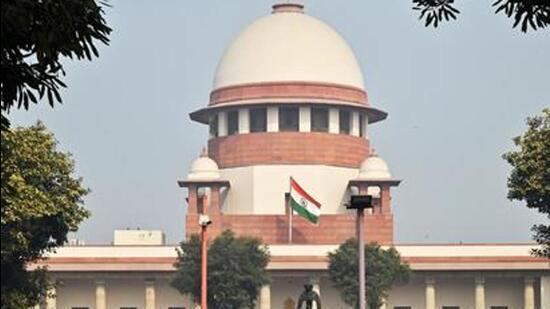
Calling someone ‘Miyan-Tiyan’ & ‘Pakistani’ not an offence: Supreme Court
In a recent development, the Supreme Court of India has ruled that calling someone “Miyan-Tiyan” and “Pakistani” may be in poor taste, but it does not constitute an offence. The ruling came in response to a case filed against an 80-year-old man who was accused of hurling abuses at an Urdu translator in Jharkhand.
The case was filed against the 80-year-old man by the translator, who claimed that the elderly man had used derogatory language against him, including referring to him as “Miyan-Tiyan” and “Pakistani”. The terms are considered derogatory and are often used to insult someone’s religion or nationality.
The Supreme Court, however, rejected the allegations and closed the case, stating that the remarks did not amount to hurting the religious sentiments of the translator. The court’s ruling has sparked a heated debate about the use of derogatory language and the limits of free speech.
The Case
The case began when the 80-year-old man, who was not named in the reports, allegedly used abusive language against the Urdu translator, including referring to him as “Miyan-Tiyan” and “Pakistani”. The translator, who was working as a translator for a government project, claimed that the elderly man had made the remarks at a public gathering in Jharkhand.
The translator filed a complaint against the elderly man, alleging that he had been subjected to mental harassment and had been forced to go into hiding. The police registered a case against the elderly man under sections 153A (promoting enmity between different groups) and 294 (obstructing public servant in discharge of public functions) of the Indian Penal Code.
The Supreme Court’s Ruling
The case was heard by a bench of the Supreme Court, which ruled that the remarks made by the elderly man did not amount to hurting the religious sentiments of the translator. The court rejected the allegations made by the translator and closed the case, stating that the use of derogatory language was in poor taste but did not constitute an offence.
In its ruling, the Supreme Court stated that the use of derogatory language was a form of free speech and was protected under the Constitution. The court noted that the translator had not been physically harmed or threatened, and that the remarks made by the elderly man did not amount to a criminal offence.
The Debate
The Supreme Court’s ruling has sparked a heated debate about the use of derogatory language and the limits of free speech. Some have argued that the use of derogatory language is a form of hate speech and should be condemned, while others have argued that it is a form of free speech and should be protected.
The case has also highlighted the issue of religious intolerance and the need for greater dialogue and understanding between different religious communities. The use of derogatory language can be a form of religious violence, and can contribute to a culture of intolerance and hatred.
Conclusion
In conclusion, the Supreme Court’s ruling that calling someone “Miyan-Tiyan” and “Pakistani” is not an offence has sparked a heated debate about the use of derogatory language and the limits of free speech. The case highlights the need for greater dialogue and understanding between different religious communities, and the need to condemn the use of derogatory language.
It is important to recognize that the use of derogatory language is a form of hate speech and can contribute to a culture of intolerance and hatred. It is essential that we promote a culture of respect and understanding, and condemn the use of derogatory language in all its forms.
Source:






